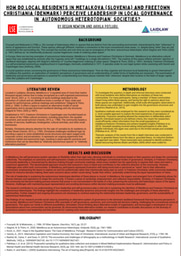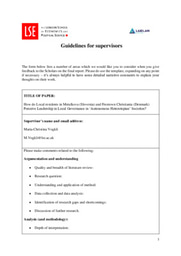Leadership In Action Project
I don’t think anybody was more shocked than me when I received an email inviting me to join the Laidlaw Scholarship Programme. Less than a month prior I had been hospitalised and diagnosed with a life-long condition that nearly took my life. The morning of my interview I had struggled to even get out of bed, and, unable to even get changed out of my pyjamas without assistance, I toyed with the idea of not attending. It’s fair to say that it felt like the worst interview I had ever done, however I did not have time to dwell on this because later that same day I was diagnosed with a disease that would change my life forever.
When you envisage a leader, you probably don’t think of someone who relies so much on others just to live, someone who is disabled, or someone who has to remind themselves that a career is still obtainable. I wasn’t a leader because leaders did not look like me, but in this blur of emotion, I realised that this was the exact narrative I needed to challenge.
My Leadership in Action Project took place at a London-based charity called ‘Unlocking Potential’ (UP). In short, UP work with children with social, emotional, and mental health (SEMH) needs to give them the skills they need to thrive post-school. I worked with UP on two of their programmes: their School’s Programme (where they provide therapeutic interventions for children with SEMH needs from schools in London’s most disadvantaged boroughs), and in the Corner School (a specialist school funded by UP for children who require intensive, high quality specialist support).
My main objectives whilst working at UP were:
- Take the lead managing the charity’s social media accounts.
- Apply to funding opportunities.
- Organise the construction of a new playground for the Corner School.
I was very pleased to say that by creating aesthetically pleasing infographics and utilising my existing knowledge of social media, I was able to boost the amount of interaction UP’s accounts got from the public. I hope that by doing this I was able to raise awareness about the important work UP do, and maybe even influence some people to donate! UP now have another volunteer sustaining their social media and continuing what I started.
Unfortunately, to my knowledge, none of the funding applications I wrote were successful. However, I got to practice writing persuasively and concisely: both valuable and transferrable skills.
Although due to time constraints I never got to see the end result of the playground in the Corner School, I was involved in many steps of the project. By collaborating with my colleagues across the charity, I was able to pick out and present a list of appropriate equipment (in terms of learning opportunities and taking the children’s diverse needs into consideration) and began to organise its installation.
The stakeholders in my project included the benefactors of the charity, the staff, and the children they support.
My experience at UP was beyond positive. I felt really connected to the cause of the charity; I strongly believe that education can be one of the single most transformative factors in an individual’s life, and so to be able to contribute, even a little, to giving children access to education felt very important to me. Because of the work of UP, these children will have better life chances, and will hopefully go on to live successful and fulfilling lives.
Collaborating with the other staff at UP allowed me to tap into a collective pool of knowledge, skills, and perspectives, which enriched the outcomes of my projects. It taught me the importance of effective communication, active listening, and respecting diverse opinions. Moreover, being part of a team provided opportunities for me to develop my leadership skills: I learnt how to motivate and inspire others, delegate tasks effectively, and facilitate productive discussions.
On a very personal level I learnt that my disability should not hold me back from taking on new and exciting projects and leadership positions. At times it was difficult to work around being systematically unwell, however I felt reassured that my team would support me by making accommodations for me, and as a result, I was able to work effectively and meet my goals.
I really hope that I was able to give as much to UP as they were able to give to me.


Please sign in
If you are a registered user on Laidlaw Scholars Network, please sign in